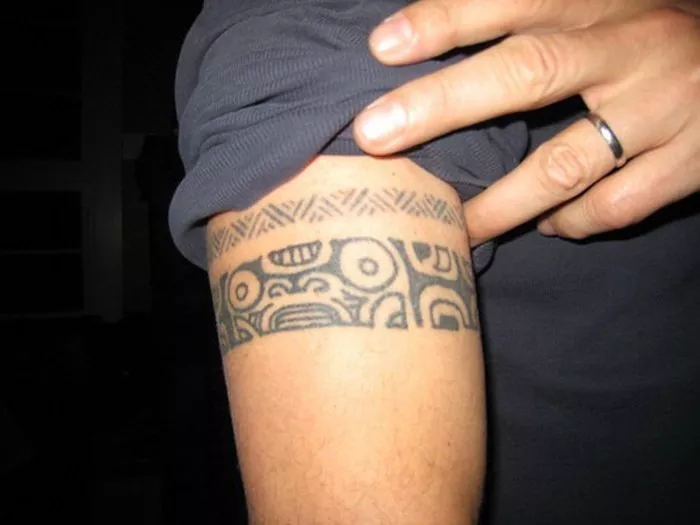Tattoos have been an integral part of human history, serving as expressions of personal identity, cultural heritage, and artistic expression. In many cultures, tattoos hold significant meanings and are worn with pride. However, in certain societies, tattoos carry negative connotations or are even prohibited due to cultural, social, or religious reasons. Korea, with its rich cultural heritage and deep-rooted traditions, is one such society where certain types of tattoos, particularly dragon tattoos, are not only frowned upon but also prohibited in certain contexts. In this article, we delve into the cultural significance of tattoos in Korea, explore the specific reasons why dragon tattoos are not allowed, and examine the social constraints that influence this prohibition.
The Significance of Tattoos in Korean Culture
Tattooing has a long history in Korea, dating back centuries. In ancient times, tattoos were associated with shamanistic rituals, tribal affiliations, and spiritual beliefs. They were symbols of courage, strength, and protection, often adorned by warriors and hunters. However, with the influence of Confucianism and the spread of Buddhism, attitudes towards tattoos began to shift.
Confucianism, which emphasizes filial piety, social order, and moral integrity, viewed tattooing as a defacement of the body, which was considered a gift from one’s parents and therefore sacred. As a result, tattoos became associated with criminality, rebellion, and social deviance. They were often used as marks of punishment for criminals or outcasts, serving as a visible stigma of one’s transgressions.
Despite these negative associations, tattoos persisted in certain subcultures, particularly among the lower classes, gang members, and marginalized groups. Even today, there exists a thriving underground tattoo scene in Korea, catering to those who seek to defy societal norms and express their individuality through body art.
Dragon Tattoos: Symbolism and Taboos
Among the myriad of tattoo designs, dragon tattoos hold a special significance in Korean culture. Dragons are mythical creatures deeply rooted in East Asian folklore, symbolizing power, wisdom, and good fortune. In Korean mythology, dragons are revered as divine beings, associated with water and the heavens, capable of bringing rain and ensuring the fertility of the land.
However, despite their auspicious symbolism, dragon tattoos carry negative connotations in Korean society. This paradox can be attributed to the dual nature of dragons, which embody both benevolent and malevolent traits. While dragons are revered for their positive attributes, they are also feared for their destructive potential.
In traditional Korean belief systems, dragons were believed to be shape-shifters capable of wreaking havoc and causing natural disasters if angered or displeased. Thus, the idea of invoking the power of a dragon through a tattoo was seen as tempting fate and inviting calamity. Additionally, the association of dragons with rebellion and defiance further contributed to the taboo surrounding dragon tattoos.
Social Constraints: Confucian Values and Modern Stigma
The prohibition of dragon tattoos in Korea is deeply intertwined with the country’s Confucian heritage and modern social norms. Confucianism, which emphasizes hierarchy, conformity, and respect for authority, places great importance on maintaining harmony within society. Tattoos, particularly visible ones like dragon tattoos, are perceived as disruptive to this harmony, challenging the norms of propriety and decorum.
Furthermore, Korea’s rapid modernization and Westernization in the 20th century brought about new attitudes towards tattoos. As Korea embraced Western ideals of beauty, fashion, and consumerism, tattoos came to be associated with Western counterculture and rebellion. They were seen as symbols of individualism and non-conformity, which clashed with the collectivist values espoused by Confucianism.
In contemporary Korean society, there exists a pervasive stigma surrounding tattoos, particularly in professional settings. Many employers have strict policies against visible tattoos, viewing them as unprofessional or even scandalous. As a result, individuals with tattoos often face discrimination and marginalization in the workplace, forcing them to conceal their body art or risk facing social repercussions.
Legal Restrictions and Public Perception
The prohibition of dragon tattoos in Korea is not only cultural but also legal in certain contexts. While there are no specific laws banning tattoos, their visibility is restricted in certain establishments such as public baths, swimming pools, and gyms. These restrictions stem from concerns over hygiene, public decency, and the association of tattoos with criminality.
Moreover, the perception of tattoos as symbols of gang affiliation or criminal behavior persists in Korean society, further contributing to the stigma surrounding body art. Despite efforts to educate the public and challenge stereotypes, tattoos remain a contentious issue, with many Koreans harboring negative attitudes towards those who choose to ink their bodies.
In recent years, there has been a growing movement to challenge the stigma surrounding tattoos and advocate for greater acceptance and understanding. Social media platforms have become powerful tools for individuals to share their stories and showcase their tattoos, challenging mainstream perceptions and promoting body positivity. However, progress has been slow, and deeply ingrained cultural attitudes continue to pose barriers to widespread acceptance of tattoos in Korea.
Conclusion
In conclusion, the prohibition of dragon tattoos in Korea is a complex phenomenon rooted in cultural traditions, social norms, and legal restrictions. While tattoos have a long history in Korean culture, their association with rebellion, criminality, and Western counterculture has led to their stigmatization in contemporary society.
The taboo surrounding dragon tattoos reflects deeper anxieties about maintaining social order, preserving cultural identity, and navigating the tensions between tradition and modernity. As Korea grapples with rapid social and cultural change, attitudes towards tattoos may continue to evolve, but overcoming centuries-old prejudices will require concerted efforts to challenge stereotypes, promote dialogue, and foster greater acceptance of diversity in all its forms.

